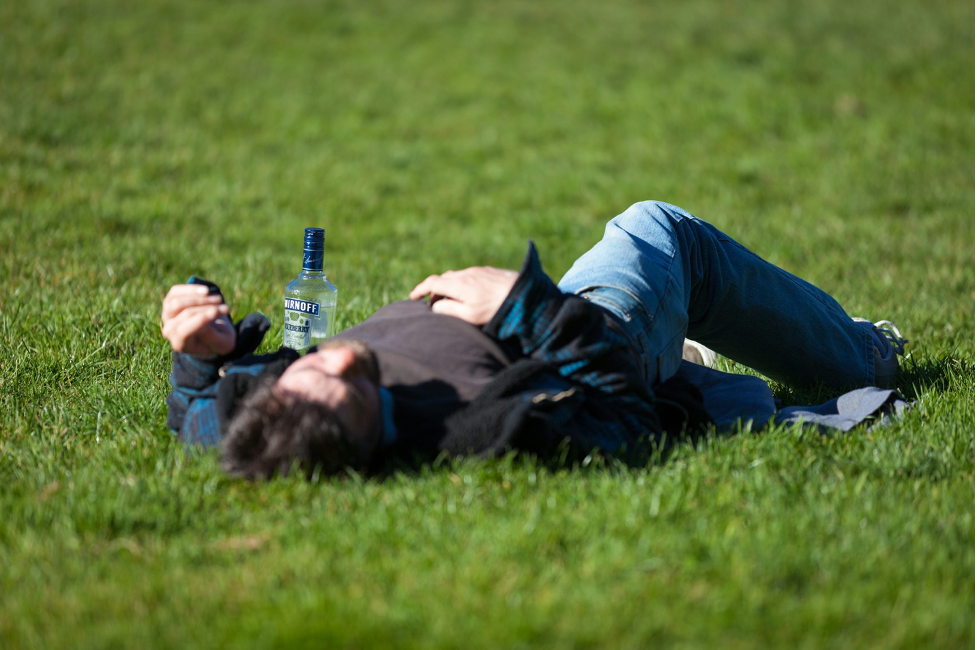
Alcohol intoxication has various symptoms, which vary in severity. Some are mild, while others are potentially fatal. Learning which symptoms are manageable with caution and which require immediate medical attention may help you save a life.
This article outlines three serious alcohol intoxication symptoms that are cause for concern and how to deal with them.
Severe Confusion or Disorientation
Severe confusion is a symptom of alcohol overdose. It causes emotional turmoil and disorientation. The affected person might seem lost; they can’t figure out where they are and can’t identify familiar people or objects either. They may also be unable to respond or react properly when talked to.
Severe confusion can be dangerous as it can prevent a person from navigating safely, increasing the risk of falling, stumbling, and getting injured in bumps and other accidents. Communication is so difficult that even asking for simple assistance might not be viable, which may lead to misunderstandings or inappropriate behaviour.
If your loved one is severely confused due to alcohol intoxication, you should:
- Keep them safe. Minimise the risk of injuries by clearing potential dangers in the surroundings, such as sharp or heavy objects, hard furniture, slip-risk items, etc. Don’t let them anywhere they might fall, and recommend that they just still sit or lie down.
- Seek medical assistance. Call emergency services if the severe confusion persists, as it may indicate serious complications like alcohol poisoning. A medical assessment may be needed to determine the severity of the intoxication. They may have to be continuously monitored and cared for at a general treatment centre.
After immediate care, consider these aftercare actions:
- Follow-up: Help your loved ones arrange a follow-up appointment and subsequent treatment visits at the hospital.
- Support their recovery: Encourage them to get medical help for their alcohol dependency if a one-time drinking stint didn’t cause the symptoms. Make sure to be supportive throughout the process.
Uncontrollable Vomiting
Vomiting is a defence mechanism of the body to remove excess alcohol. So, it’s a common alcohol intoxication symptom. However, if a drunken person does not stop throwing up, it may indicate alcohol poisoning, which warrants urgent medical attention. Vomiting may also be due to other underlying health issues like liver disease exacerbated by alcohol.
A person can choke on vomit, specifically when unconscious and lying on their back, making this symptom of alcohol intoxication dangerous. Aside from that, vomiting can put a person at risk of dehydration. Continuous vomiting can lead to significant fluid loss and electrolyte imbalance.
When you see someone vomiting nonstop, do the following:
- Call emergency services: Uncontrollable vomiting, especially when accompanied by other symptoms like unresponsiveness, warrants urgent medical attention. The patient may need to be hospitalised for urgent treatment and to prevent further fluid loss.
- Help them maintain proper position: While waiting for help to arrive, it’s important to prevent further harm to the patient. Keep them awake and sitting up. However, if they must lie down, do so sideways, preferably on their left side. Put a cushion under their head. Do not have them lying on their back.
After they stop vomiting, either after being admitted to the hospital or not, we recommend doing the following post-care:
- Consult healthcare: Schedule a follow-up to see if other underlying issues may have caused vomiting.
- Rehydrate: The patient must regain the significant amount of fluid they lost. However, do so slowly through small sips of water or oral rehydration solution. Drinking large amounts at once may trigger more vomiting.
Stupor or Unresponsiveness

When you see your loved one is unable to respond to the attempts of being awakened, like shaking and shouting, they may be experiencing one of the severe alcohol intoxication symptoms: stupor. The person may remain sound asleep or unconscious despite the efforts to rouse them.
Stupor usually happens at a Blood Alcohol Content (BAC) of 0.30%. Stupor is an involuntary action and is different from someone actively going to sleep due to consuming too much alcohol. This unresponsiveness may indicate that the alcohol content in the bloodstream is enough to depress the central nervous system, increasing the chance of alcohol poisoning.
If you see someone unresponsive, don’t assume they will just “sleep it off.” Instead, do the following:
- Call for immediate medical assistance: Don’t let the affected individual sleep off the symptom because they may end up running into more problems like choking on their vomit. The inability to wake up might also lead to severe complications like slowed breathing, brain damage, or respiratory arrest. The patient might have to be confined and cared for at a hospital.
- Monitor until help arrives: While waiting for the medical personnel, keep a close eye on the patient. Watch out for any change in their condition, particularly in their pulse and breathing. If the person stops breathing, you might have to perform CPR. Make sure to follow the proper procedure for chest compression or have someone with experience do it.
Here are some post-care suggestions once the immediate danger brought by the stupor is addressed:
- Follow-up: Schedule follow-up appointments to assess damage and monitor recovery.
- Address underlying issue: Being unconscious due to over-drinking is one of the most severe serious alcohol intoxication symptoms that is closely linked to even worse conditions like coma and even death. If its main cause is alcohol addiction, it’s better to get treatment for one. You can encourage your loved ones to try different treatment approaches like outpatient and in-patient care or holistic methods.
Other signs that an intoxicated person may be in danger include low body temperature, slow or irregular breathing, and clammy skin. Make sure to watch out for these symptoms of alcohol intoxication as well.
What to Do When Someone Shows Severe Alcohol Intoxication Symptoms
Knowing how to recognise and respond to severe alcohol intoxication symptoms can be a key factor in saving your loved ones when they show signs of them. Keep in mind that you should act quickly and prioritise getting professional help.
Be ready to provide the responders with details about the person, including the kind and quantity of alcohol they consumed, additional medications they took, and medical details you are aware of.
Make sure that the person doesn’t consume alcohol further, as it may aggravate their condition. Adding more types of substances into the mix may also complicate the treatment. There are also usually legal penalties for serving or providing alcohol to an obviously drunk person, depending on where you are.
If you’re looking for a comprehensive treatment that addresses the most common root of the alcohol intoxication symptoms, i.e., alcohol addiction, try looking into Hills & Ranges Private (HARP).
HARP is a luxury rehab centre that offers dedicated care and a range of holistic services. It offers counselling, mindfulness training, yoga, art therapy, etc., all designed to help you or your loved ones overcome alcohol dependency.
Unsure whether or not you have a drinking problem?



